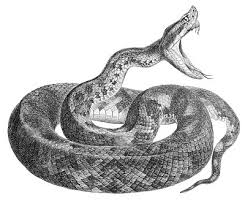Buddhism, Atrocities & War
Tuesday 07 Mar 2017
A friend has sent me this following text in an Email. It is a challenging statement that to my mind has the ring of truth to it. My apologies to those offended by its coarseness.
“Unless you are willing to be as unreasonable and as brutal, as your enemy, do not engage him in a conflict -- because he will win”.
The above is a quote from a WWII veteran after he overheard someone say that:
"You can't bomb an ideology!"
"The hell you can't”, he said “because we did it”.
“These Muslims are no different than the [Imperial] Japanese”. “The Japs had their suicide bombers too”. “And we stopped them”.
“What it takes is the resolve and will to use a level of brutality and violence that your generations can't stomach”.
 “And until you can, this shit won't stop. It took us on the beaches with bullets, clearing out caves with flame throwers, and men like LeMay burning down their cities, killing people by the tens of thousands”.
“And until you can, this shit won't stop. It took us on the beaches with bullets, clearing out caves with flame throwers, and men like LeMay burning down their cities, killing people by the tens of thousands”.
“And then it took 2 atom bombs on top of it”. “Plus we had to bomb the shit out of German cities to get them to quit fighting”.
“But, if that was what it took to win, we were willing to do it”. “Until you are willing to do the same...well I hope you enjoy this shit, because it ain't going to stop”! “Back then, we had leadership, resolve, resources and determination”.
“Today we're afraid to hurt people's feelings....and worry about which bathroom to piss in!"
When I received this Email I felt an inherent challenge to justify my often stated antiwar rhetoric, along with my “turn the other cheek” or what can even be wrongly perceived as a my “pacifist” agenda. I needed to be able to justify the relative truth that I can obviously see in this hard hitting statement and then set it against my deep commitment to the Buddhist practice of peace.
At the same time as I received this Email and because I have duties that relate to marriage celebrants with the F.A.B.C. (Federation of Australian Buddhist Councils), one of my colleagues asked me for input relating to a “Department of Defence” request for a Buddhist Chaplain. Is this an oxymoron?
In the Buddhist Sutta’s that have been handed down from the Buddha, we have heroic stories around the idea of Loving Kindness (Metta). The Buddha told us that even though there may be two of our enemies sawing us in half with a two handed saw, our resolve and mindfulness must be on focusing Loving Kindness toward the people who are sawing us in half. Phew!! I wonder --- can it be done?
 Then there are other less definite allegories that are told through the generations. Stories like the “Snakes Hiss”. This is a story about a reformed snake that used to be a very nasty snake. He was always trying to bite the villagers and had fun scaring them. He would hide in the grass to surprise and then bite without mercy. All the villagers were scared of him and gave him a wide birth. One day the snake had an epiphany. He was travelling high in the mountains above where he lived, and met a reclusive Snake Master in a cave. This Snake Master taught the snake how to make his mind still and told him about enlightenment which really interested our snake. He was ready for it! The master taught him the fundamentals of meditation and he genuinely saw through to the positive results that would accompany this practice. He learned how to be loving, kind and compassionate. The Snake Master exhorted him to be kind and not to bite people. The snake saw the benefits of cultivating a still mind. He saw how to develop joy in the happiness of others. He also practiced to become equanimeous. He returned home with his new found skills, his heart full of love and compassion and it was not long before the villagers started to be less fearful of him. They would approach and even started to have “dares” to get closer and touch him. The snake accepted all this graciously, sending out love and goodwill. But then the tide started to turn, as the villagers started laughing at him and abusing him. They started to chase him with sticks until he felt in mortal danger. Battered and bruised the snake went back to the Snake Master and told him what had happened. The Snake Master immediately rebuked his battered disciple and he yelled at him --- “you stupid snake, I told you not to bite people but I did not tell you to stop hissing”.
Then there are other less definite allegories that are told through the generations. Stories like the “Snakes Hiss”. This is a story about a reformed snake that used to be a very nasty snake. He was always trying to bite the villagers and had fun scaring them. He would hide in the grass to surprise and then bite without mercy. All the villagers were scared of him and gave him a wide birth. One day the snake had an epiphany. He was travelling high in the mountains above where he lived, and met a reclusive Snake Master in a cave. This Snake Master taught the snake how to make his mind still and told him about enlightenment which really interested our snake. He was ready for it! The master taught him the fundamentals of meditation and he genuinely saw through to the positive results that would accompany this practice. He learned how to be loving, kind and compassionate. The Snake Master exhorted him to be kind and not to bite people. The snake saw the benefits of cultivating a still mind. He saw how to develop joy in the happiness of others. He also practiced to become equanimeous. He returned home with his new found skills, his heart full of love and compassion and it was not long before the villagers started to be less fearful of him. They would approach and even started to have “dares” to get closer and touch him. The snake accepted all this graciously, sending out love and goodwill. But then the tide started to turn, as the villagers started laughing at him and abusing him. They started to chase him with sticks until he felt in mortal danger. Battered and bruised the snake went back to the Snake Master and told him what had happened. The Snake Master immediately rebuked his battered disciple and he yelled at him --- “you stupid snake, I told you not to bite people but I did not tell you to stop hissing”.
So we could take a pacifist approach and focus loving kindness on the people sawing us in half, but in the context of the Email under discussion, I do not see this as very noble. Further because of the righteousness felt by the people doing the sawing, which, generally speaking is brought about through delusion, we may be contributing further to the deluded consciousness by acquiescing. It may even be that the bad karma they are making can lessened by us taking control! The context that the Buddha was invoking in the two handed saw story is about us aspiring to see the right way of practice especially when it is not possible to do anything else. To be free of fear and loathing one would also need also to be rooted in Absolute Truth, rather than the Relative Truth of what was happening with the saw. In Buddhist terms this is called “Supra Mundane” as opposed to “Mundane”. Wisdom might even tell us to hiss if our insight tells us it might be a way to frighten off our enemies, or perhaps to reason with them should there be a suitable opening into their consciousness, however, as the email example makes clear, even hissing or reasoning is sometimes not enough.
 When atrocities and recklessness with life is being practiced without any insight or awareness of the bigger picture, when bad or wrong ignorant behaviour, that is instinctual and unreasonable is being inflicted without regard to the wider view of consciousness, we do need to recognise that this behaviour is still a natural event. It is not beyond the realm of nature, and that the humanity that commit atrocities are part of our being in the human condition. It is a reflection of us! With this in mind, it may become necessary to defend our self or others by opposing with like-minded or even stronger force, with a view to bring about a more suitable environment that allows a higher consciousness to prevail. A consciousness that can move from fear and ignorance to inspiration and acceptance of our own and the others differences --- a consciousness that can also sacrifice itself for others when and if the need arises. There is a Buddhist story wherein an earlier developing life, the Buddha, as an act of compassion, threw himself off a cliff to land in front of a starving tiger family in order to be their food.
When atrocities and recklessness with life is being practiced without any insight or awareness of the bigger picture, when bad or wrong ignorant behaviour, that is instinctual and unreasonable is being inflicted without regard to the wider view of consciousness, we do need to recognise that this behaviour is still a natural event. It is not beyond the realm of nature, and that the humanity that commit atrocities are part of our being in the human condition. It is a reflection of us! With this in mind, it may become necessary to defend our self or others by opposing with like-minded or even stronger force, with a view to bring about a more suitable environment that allows a higher consciousness to prevail. A consciousness that can move from fear and ignorance to inspiration and acceptance of our own and the others differences --- a consciousness that can also sacrifice itself for others when and if the need arises. There is a Buddhist story wherein an earlier developing life, the Buddha, as an act of compassion, threw himself off a cliff to land in front of a starving tiger family in order to be their food.
Judgements in these matters are always balanced on a fine line. It must always include time, place and context; however it should be said that there is, at times, a need to take responsibility for a harsh even brutal action that works to intentionally create a climate that is more sensitive and harmonious. This will never be done instinctually in fear and loathing, but rather with love and awareness in our hearts and when it is obvious that the virtuous path has been totally compromised.
Post Script.
The arguments set out here apply to all consciousness in sequence (not necessarily linear) as we apply a moral and ethical framework to reach enlightenment. This includes the consciousness of animals and the daily atrocities we still commit on our food animals. Do we need to do this now?
Acknowledgements to the Monday meditation group at the CBSWA along with my friend who sent the Email and Ajahn Brahm who tells the hissing snake story.






